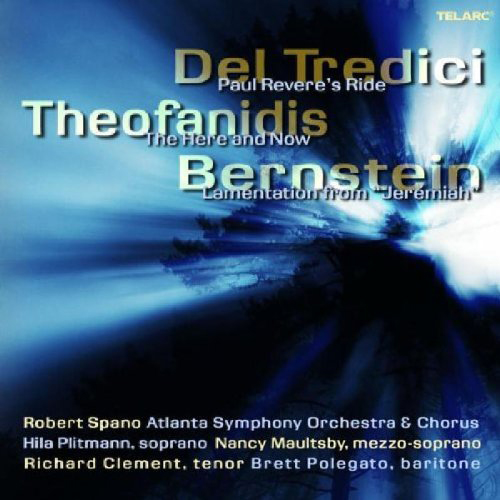I. Inside this new love, die
II. Is the one I love everywhere?
III. The sound of the resurrection
IV. All day and night, music
V. Narrative I: The value of our souls
VI. Hear blessings dropping their blossoms around you
VII. The one who pours is wilder than we
VIII. Narrative II: Three kinds of women
IX. Drumsound rises
X. Spreading radiance
XI. Narrative III: Insomnia
XII. The urgency of love
XIII. The music of our final meeting
Duration: 35 minutes
FIRST PERFORMANCE: May 2005/ Hila Plittman, soprano, Rick Clement, tenor, Brett Polegato, baritone/ Atlanta Symphony and Chorus, Robert Spano

I first encountered Jalal ad-Din Rumi’s poetry in Rome seven years ago when I went to hear Philip Glass and Robert Wilson’s Monsters of Grace. I enjoyed the music enormously, but the thing that really moved me was Rumi’s poetry as translated by the great poet, Coleman Barks. It was at once immediate and vivid, and it had a way of seeing things in which joy, love, and gratitude mingled with an underlying sense of longing and restlessness to return to the divine. The density of wisdom in this poetry really struck me, and I found myself focusing on particular lines in an almost mantra-like way, repeating them aloud over and over and writing musical responses to them.
Robert Spano called me in January 2004 and said that he wanted to commission a new work that involved the Atlanta Symphony Chorus- maybe a ten to twelve minute a cappella work, or possibly a work for chorus with orchestra. I decided to do something with orchestra, but I couldn’t think of many ten to twelve minute pieces in that genre that really stood the test of time, and so I asked permission to write a larger work. One of Robert’s great attributes is his ultimate flexibility in working with composers (which must come from the fact that he is actually a composer himself), and he said yes.
I knew that I did not want to set larger sections of Rumi’s texts whole, but rather to set them in shorter, more compact ways- the way the poetry actually spoke to me. I compiled thirteen short movements from the poetic fragments. These are mostly choral, but are broken up by some very brief movements for baritone solo (nos. 5, 8, 11), all less than a minute. They are like little parables with humor, and I felt provided a kind of sonic relief to the choral movements. There is also a tenor and soprano duet with chorus (mvt. 12).
My deep thanks go to both Coleman for permission to use his marvelous translations, and to Robert for making this whole thing possible.
—Christopher Theofanidis
